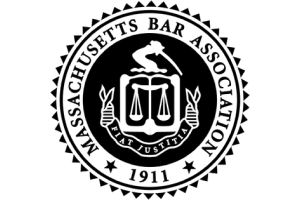Defense Lawyer
Boston 209A Restraining Orders or Abuse Prevention Orders
Chapter 209A Abuse Prevention Orders
Boston Criminal Defense lawyer Joe Serpa provides skilled representation for both Plaintiffs and Defendants in Massachusetts restraining orders.
Massachusetts restraining orders are also called Chapter 209A abuse prevention orders. They are ordinarily heard in the Massachusetts District Courts or the Boston Municipal Courts. These are civil orders with serious, including criminal, consequences. A skilled Massachusetts domestic violence attorney with deep knowledge of Massachusetts criminal procedure and criminal trial experience is necessary for your best outcome in these cases.
Massachusetts 209A abuse prevention orders, again, are civil orders. They are designed to protect family, household or “substantive” dating relations from abuse. Often, these restraining orders are part of a separate criminal case alleging domestic violence crimes.
Will My Massachusetts Restraining Order Create a Criminal Record?
Not exactly. Massachusetts restraining orders are largely private. They do not show on your Massachusetts criminal record. They do not need to be sealed or expunged. However, courts and law enforcement will have a record of your 209A abuse prevention order. Also, violations of Massachusetts restraining orders are crimes. The criminal case will show on your Massachusetts criminal record after you have been arraigned.
What is the Hearing Process in Massachusetts Restraining Orders?
Massachusetts judges issue 209A abuse prevention orders after two hearings. The first hearing is “ex parte,” which means only one side is heard. The person who needs protection from abuse can appear in court, prepare an application and see a judge immediately for the first hearing. If the court is closed, judges are on-call to hear applications by telephone at any hour of the day. Again, the person asking for protection (the Plaintiff) appears alone and without notice to the other person (the Respondent or the Defendant).
This first, temporary restraining order can be issued for up to ten days. There can be extensions if the defendant has not been notified to appear on the tenth day. On or before the tenth day, the court must hold another hearing that gives the defendant an opportunity to appear and demonstrate that there is no need for a restraining order.
The second hearing can lead to an order no longer than one year. When the first year has passed, the parties must appear again to argue for and against additional extensions or the restraining order. If the plaintiff does not appear at this point, the restraining order will be vacated. If the defendant does not appear at this third hearing, but the plaintiff does, the restraining order will likely be extended based on the plaintiff’s wishes. Extensions at the third hearing can be indefinite or for any period of time.
To issue the first, ex parte abuse prevention order, the court must find that there is “a substantial likelihood of immediate danger of abuse.” To extend the restraining order after a full hearing, the court must find a substantial likelihood of continued “abuse” upon a family or household member. Massachusetts’ 209A law defines “abuse” as attempting to cause or causing physical harm. (b) placing another in fear of imminent serious physical harm, or (c) causing another to engage involuntarily in sexual relations by force, threat or duress.
A 209A abuse prevention order can order the defendant to do, or not do, many things, including:
- prohibiting the defendant from abusing the defendant;
- prohibiting the defendant from contacting the plaintiff or the plaintiff’s children;
- ordering the defendant to vacate and stay away from any residence or workplace;
- awarding the plaintiff temporary custody of any minor children;
- restricting visitation with any minor children, including ordering supervised visitation or requiring the defendant to attend counseling as a condition of visitation;
- ordering the defendant to pay temporary spousal support or child support;
- ordering the defendant to pay restitution (reimbursement) for any costs incurred as a result of abuse, such as lost earnings, replacement costs for locks, medical expenses, or moving expenses;
- ordering the defendant to pay the plaintiff’s attorney’s fees, and
- ordering the defendant attend counseling.
Violations of 209A Abuse Prevention Orders
It is a crime in Massachusetts to violate a 209A abuse prevention order or Massachusetts retraining order. If you are found guilty of violating an abuse prevention order, you can be punished for up to two-and-one-half years in the house of correction and be ordered to take a partner abuse program certified by Massachusetts.
Like all Massachusetts domestic violence cases, accusations of criminal restraining order or 209A violations do not require a Massachusetts clerk magistrate’s hearing. You can be arrested or mailed a notice to appear for arraignment if you are accused of a Massachusetts restraining order violation.
Massachusetts prosecutors offices are serious about these cases. A skilled and experienced Boston criminal defense lawyer is essential to find the best solution of you’re accused of violating a Massachusetts restraining order. Massachusetts district attorneys offices have “no tolerance” polices on how to resolve restraining order violations. Very often, these cases must be tried to a judge or a jury. These cases are handled by the same prosecutorial team that handles all domestic violence accusations in Massachusetts district attorney’s offices. A talented and experienced criminal defense lawyer is critical to correctly and successfully defend these cases. The pitfalls are many and an inexperienced person can easily make a fatal mistake.
Only certain sections of an abuse prevention order can be prosecuted as criminal violations in Massachusetts Those are the no-contact and stay-away sections. Violating other sections of a restraining order can be addressed as civil violations, but cannot be prosecuted in a criminal case.
It is not uncommon for these accusations to be charged alongside an “intimidation of a witness” accusation. This a treacherous set of circumstances. First, you charged with a felony that cannot be sealed or expunged upon conviction. Second, Massachusetts law allows the district attorney’s office to use the alleged victim’s out-of-court statements against you at trial if there is a finding that you attempted to coerce or influence a witness not to testify. You need an experience criminal defense lawyer for help both before and after making the critical mistake of contacting an alleged victim.
Accidental and Incidental 209A Restraining Order Violations
Massachusetts’ courts of appeal have made it clear that you cannot commit a crime by accident. A “pocket dial” or accidentally running into someone at the grocery store are not restraining order violations, as long as you leave and do not communicate.
Therefore, violations of a 209A abuse prevention orders must be “intentional.” The prosecution must prove that the violation of the abuse prevention order was deliberate. A person who finds themself in the presence of the other person by accident is not guilty of violating the order as long as the person leaves immediately when they learn that the other person is nearby.
“Incidental” restraining order violations are also not a crime. Also, a person who has contact with the other person “incidental to,” (or while doing) something lawful, is not violating the order as long as the person doesn’t go beyond the lawful conduct to violate the Massachusetts restraining order. A good example is seeing the other person in court or at school. That’s not a violation as long as the there is no “extra” conduct beyond what is needed for that “lawful purpose.”
Can the Plaintiff Violate a 209A Restraining Order in Massachusetts?
No. This is a a frustrating and risky circumstance for defendants in Massachusetts abuse prevention orders. Only one party, the defendant, has obligations under a Massachusetts restraining order. Plaintiffs have no obligation to do, or refrain from, any conduct during an active restraining order. They are free to contact you, approach you or show up at your home or place of business while an order is pending. Your obligation under those circumstances is to leave the location and have no contact with the Plaintiff.
Can you apply for your own abuse prevention order to prevent threats of unfair prosecution or false accusations by the Plaintiff? Again, the unfair answer is no. Massachusetts’ Supreme Judicial Court has decided that 209A restraining orders are for protection from physical or emotional abuse in the traditional sense. A Massachusetts court is not permitted to grant a 209A restraining order because the Plaintiff cannot be trusted to refrain from falsely accusing you or manufacturing a violation by simply showing up or calling you.
Is there really nothing you can do when a Massachusetts restraining order plaintiff engages in this form of harassment? You have options. You can ask a Massachusetts judge to vacate an order if the Plaintiff engages in this kind of conduct. After all, the 209A Plaintiff can’t be sincere in their fear of abuse if they continue to show up.
A judge can also modify a Massachusetts restraining order to specify that contact instigated by a bad faith Plaintiff does not violate the order. Do not wait to seek help if you’re the vicim of a bad faith 209A Plaintiff. Call our criminal defense firm for immediate help.
Massachusetts’ rules of criminal procedure, and the courtroom skills needed to address these case, are specific and rigorous. Please contact Joe Serpa, a talented Boston criminal defense attorney with a specialty in domestic violence criminal defense in Massachusetts, for help. Again, we are located in Back Bay, Boston and Marina Bay Quincy.












